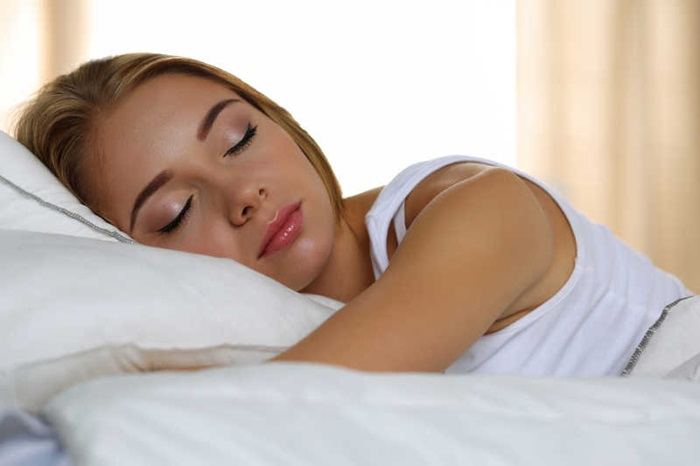HRT can be an effective solution for some women. By replacing the hormones that decline during menopause, such as estrogen, it can address various symptoms that disrupt sleep. Estrogen, for example, can help with hot flashes and night sweats, which are common culprits for sleep disturbances. When these symptoms are alleviated, it becomes much easier to fall asleep and stay asleep. However, it’s important to be aware of the potential risks associated with HRT, including an increased risk of certain health issues like blood clots, stroke, or breast cancer in some cases. Your doctor will need to evaluate your personal health history before recommending this option.
Melatonin is a natural hormone that helps regulate the sleep – wake cycle. During menopause, the body’s normal production of melatonin may be disrupted. Taking a melatonin supplement can be a helpful aid for sleep. It’s available over – the – counter in various forms. You can start with a low dose and adjust as needed. It’s a relatively safe option, but some people may experience side effects like drowsiness during the day or vivid dreams.
Certain antidepressants can also be beneficial for sleep during menopause. Selective Serotonin Reuptake Inhibitors (SSRIs) like paroxetine and venlafaxine can help not only with mood but also with sleep. They can reduce the frequency of hot flashes, which often interfere with sleep. Additionally, some tricyclic antidepressants may have a sedative effect that promotes sleep. But these medications should be used under the guidance of a doctor as they can have side effects and may interact with other drugs you’re taking.
Gabapentin, which is used for various neurological conditions, can be effective for menopausal sleep problems. It can reduce hot flashes and has a calming effect on the nervous system. Many women find that it helps them relax and sleep better. However, possible side effects include drowsiness, dizziness, and swelling in the hands and feet.
Valerian root is a popular herbal remedy for sleep. It has a calming effect on the nervous system. You can take it as a tea or in supplement form. It’s believed to help reduce anxiety and promote relaxation, making it easier to fall asleep. However, the taste of valerian root tea can be strong, and it may take some time to notice its effects.
Lavender has long been associated with relaxation and better sleep. You can use lavender essential oil in a diffuser in your bedroom. The soothing scent can help calm your mind and body. You can also try using lavender – scented pillow sprays or sachets. Some studies have shown that the aroma of lavender can improve sleep quality.
Magnesium is an essential mineral that plays a role in many bodily functions, including sleep. It can help relax muscles and calm the nervous system. Taking a magnesium supplement, especially magnesium citrate or magnesium glycinate, before bed may improve your sleep. Foods rich in magnesium, such as nuts, seeds, and leafy green vegetables, can also be beneficial.
Create a sleep – friendly environment in your bedroom. Keep the room cool, dark, and quiet. Use blackout curtains, a fan, or a white noise machine if necessary. Invest in a comfortable mattress and pillows that support your body.
Establish a regular sleep routine. Go to bed and wake up at the same time every day, even on weekends. Avoid using electronic devices like smartphones and tablets in the bedroom as the blue light they emit can interfere with sleep. Instead, try reading a book or listening to soft music to relax before bed.
Regular physical activity can improve sleep, but it’s important to time it right. Avoid exercising too close to bedtime as it can be stimulating. Instead, aim for a workout earlier in the day. Activities like walking, yoga, or swimming can be great for relieving stress and promoting better sleep.
In conclusion, there are multiple options available to help you sleep during menopause. From medical treatments to natural remedies and lifestyle changes, you can find the combination that works best for you. If sleep problems persist or are severe, consult your healthcare provider for further evaluation and advice.
Read more
How Does Appendix Trouble Make You Feel?
What CBD Is Good For Menopause?
What Are The 3 Stages Of Menopause?


